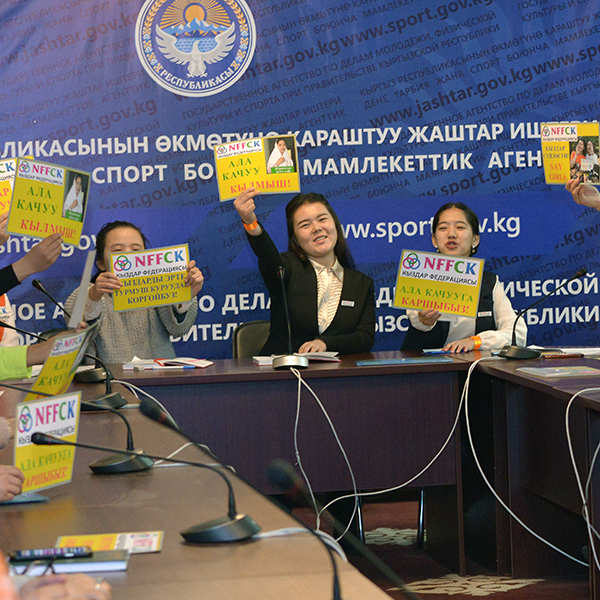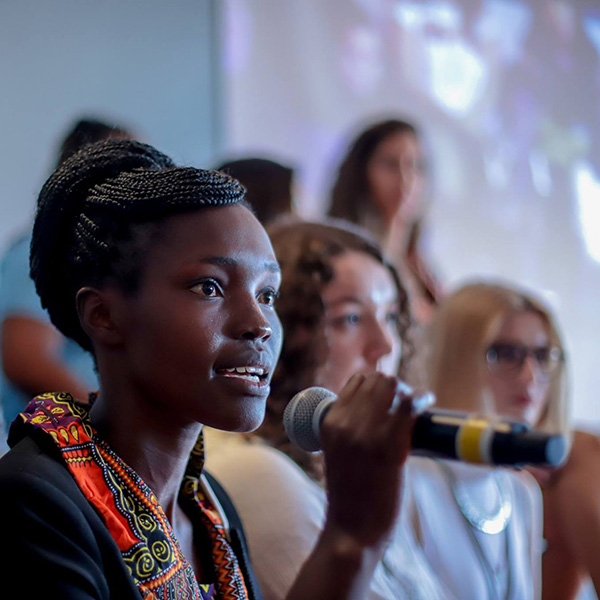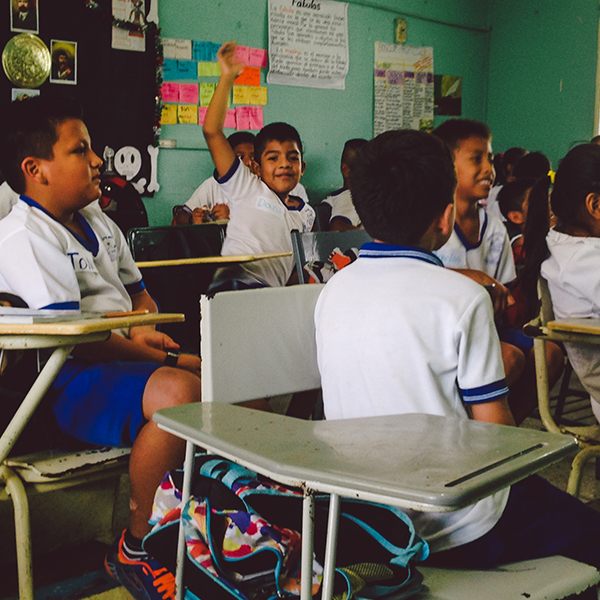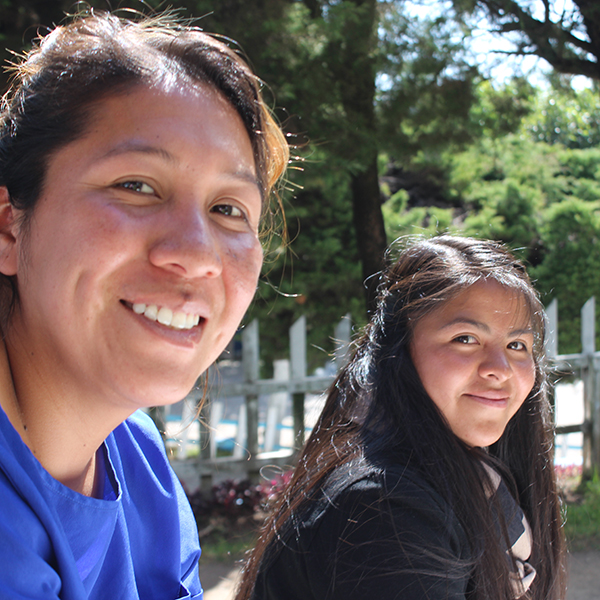This is how one grassroots organization in Sierra Leone teamed up with international allies to win a major victory for girls’ rights.
“The girls have won!” Hannah Yambasu, Executive Director of Women Against Violence and Exploitation in Society (WAVES), beamed as she recounted how her organization’s decision to go to a regional human rights court led to the end of a discriminatory policy limiting girls’ right to education. WAVES became a GFC partner in 2020 as part of the new Ending Violence, Empowering Girls initiative.
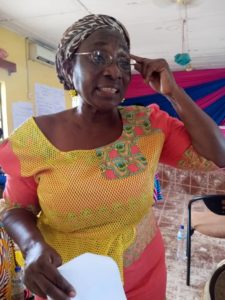
As the world faces the COVID-19 pandemic, advocates for girls have warned of alarming increases in sexual violence, abusive relationships, and adolescent pregnancy. Many communities in West Africa –including Bo, the city in Sierra Leone where Hannah founded WAVES – experienced a crisis in violence against women and girls during the 2014–2016 Ebola outbreak.
When Ebola struck Sierra Leone’s Southern Province, WAVES witnessed firsthand how pandemics disproportionately affect women and girls. Founded in 2005, WAVES facilitates access to justice for women in rural communities, training more than 180 women and children annually about their human rights. During the Ebola crisis, Hannah explained, children’s needs were neglected, especially girls’. WAVES began to see an increase in sexual violence at the same time as communities were unable to access information and health services. The number of teenage girls becoming pregnant rose.
In the midst of the Ebola crisis, when Sierra Leone’s government made the decision to reopen schools in 2015, the Ministry of Education, Science, and Technology prohibited visibly pregnant girls from taking national exams and attending mainstream schools. Sierra Leone has one of the highest adolescent pregnancy rates in the world, and the government feared that allowing pregnant girls to attend school would lead to even more pregnancies among adolescents. According to Hannah, this decision impacted at least 3,000 girls across the country who could not sit for exams or attend classes. Hannah was outraged that girls were denied their right to education, ostracized, and made to feel ashamed.
WAVES, along with many other national and international human rights organizations, decried the discrimination and urged a change in the policy. Under pressure, the government created alternative classes with reduced curriculum for pregnant girls and young mothers. WAVES and other girls’ rights advocates called out the government for not offering the same quality of education to pregnant girls – thereby inflicting shame upon young mothers, reinforcing power imbalances, and perpetuating the cycle of poverty.
Human rights organizations came together to launch an investigation, collecting testimony with great care from impacted girls in communities across Sierra Leone. Hannah recalled the story of one girl who lost both of her parents during the Ebola crisis and became responsible for caring for her siblings. Men took advantage of her vulnerable situation, and she became pregnant. She wanted to continue her schooling but was told she could not sit for national exams to attend secondary school.
Amnesty International’s extensive fact-finding efforts included interviews with 68 girls aged 15 to 20 in 2016. This research found accounts of girls being subjected to degrading procedures by those in positions of authority to determine if they were pregnant. Girls explained they wanted to have a choice about going to school or not, and that staying with their peers of the same age was important to them.
WAVES and its allies launched advocacy campaigns, bolstered by the research. “We kept hitting a wall,” recounted Hannah, “until 2016, when we met with Equality Now, who offered a new strategy.” Equality Now, an international human rights organization that uses the law to protect the human rights of women and girls, proposed strategic litigation. The organizations first considered litigating in Sierra Leone, but the country’s Constitution and Education Act did not offer sufficient leverage to make a strong case. Instead, the organizations turned to the regional level and the greater human rights mechanisms at the Community Court of Justice, an institution within the Economic Community of West African States (ECOWAS).
“We asked the girls if they wanted us to take the ban to court, and they said, ‘Yes, fight our case for us,’” Hannah explained. In May 2018, WAVES and its legal allies Equality Now and the Institute for Human Rights and Development in Africa took the Sierra Leone government to court for violating international treaties and breaching girls’ right to education.
Girls’ stories were critical evidence presented to the court and ultimately led to a victorious court decision in December 2019. The court found the Sierra Leone government to be in breach of key articles of the African Charter, the Convention on the Rights of the Child, and the Convention Against Discrimination in Education. The court ultimately ruled that not only must Sierra Leone immediately revoke the ban, but it must also develop nationwide strategies to address gender inequality. The court called upon the government to execute a plan to reverse bias toward pregnant girls and teenage mothers, as well as to integrate sexual and reproductive health education into school curricula.
https://www.facebook.com/13649914583/videos/1593085464167874/
The court decision intensified the growing international pressure and led to the government rescinding the ban in March 2020 and developing a task force to implement the court’s ruling. The government finally recognized the importance of the rights and inclusion of pregnant girls and young mothers to advance equality, reduce poverty, and end violence toward women and girls in Sierra Leone.
Just as hope for change emerged, though, fears of COVID-19 spread, resulting in school closures in Sierra Leone. Government efforts turned toward responding to the pandemic, and all efforts with the task force came to a halt. Nevertheless, WAVES is looking ahead and preparing the community for all girls to return to school when it is safe to do so. The organization plans to monitor local schools and document any cases of discrimination.
Throughout the pandemic, WAVES has persisted in educating girls about their rights and providing comprehensive sex education. WAVES’s community advocates are continuing to engage parents, teachers, and traditional authorities in an effort to change mindsets about girls’ education. When the government task force relaunches, WAVES is hopeful about nationwide changes being made and will engage local councils in implementing them.
“No matter what happens at a national level, we want to ensure schools accept the girls and have the mechanisms in place to welcome them. We are not going to allow the same thing to happen as during Ebola,” emphasized Hannah.
WAVES’s advocacy efforts demonstrate the power of grassroots organizations – deeply impacted by issues in their communities – to leverage human rights mechanisms to influence change. May WAVES’s story, and the power of girls testifying to protect their rights, inspire peer organizations in the Ending Violence, Empowering Girls initiative and other organizations across the African continent to dream boldly to reclaim girls’ agency.
Global Fund for Children supports a network of eight community-based organizations in West Africa that are tackling violence against girls in their own communities, while empowering girls to exercise agency and autonomy over their bodies and their lives.
